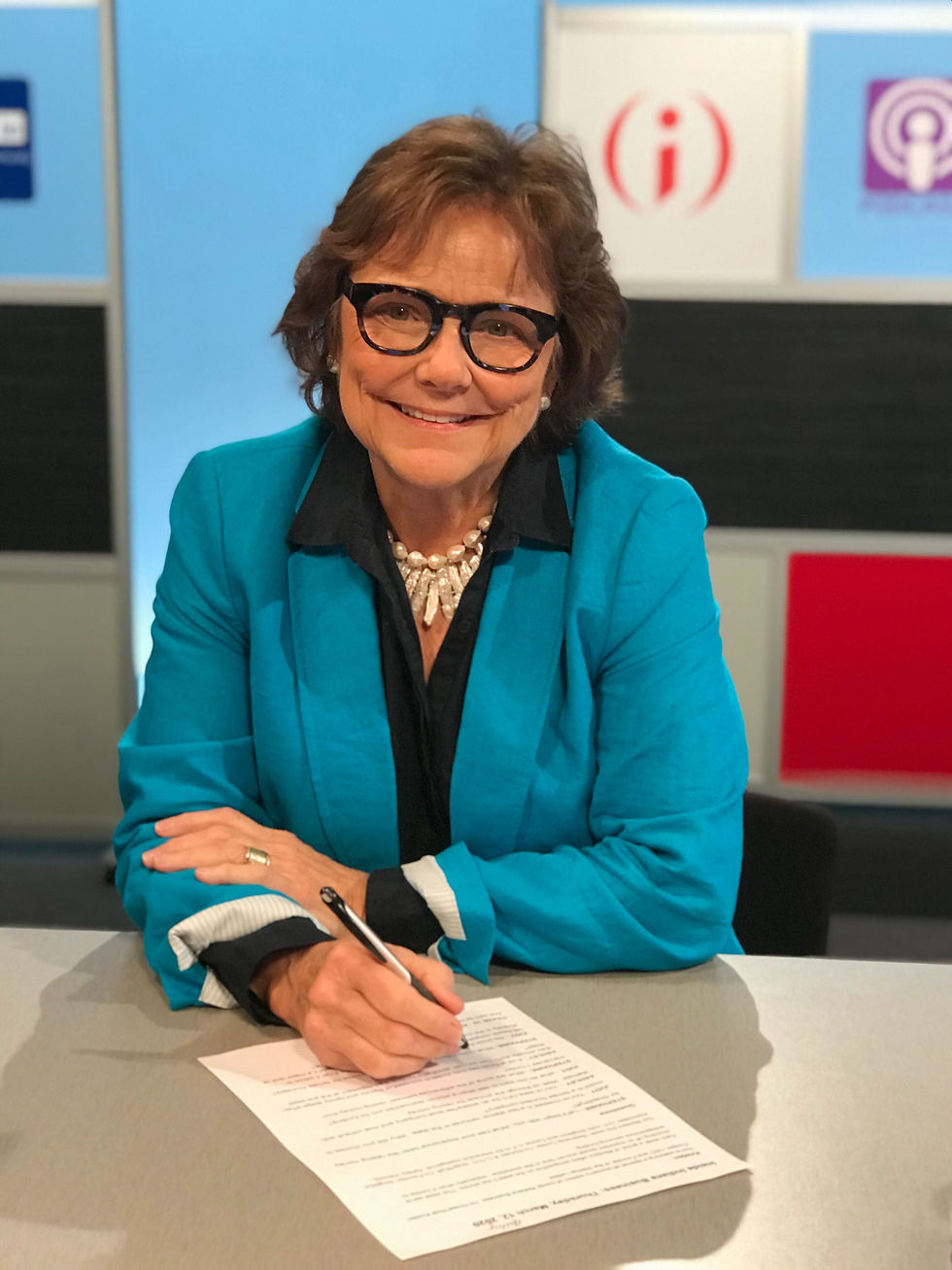Invest in independent films and startups led by women
- The Startup Ladies

- Oct 28, 2020
- 6 min read
Updated: Aug 12, 2021
By Judy Singleton

I’m going to tell you more about my career path than you might want, but I have to go into detail so you can understand why my path has no order to it – kind of like a crazy quilt. And why on earth I’d be willing to invest in high risk women-led start-ups and higher risk independent films about women.
As a 1969 woman graduate of Purdue University, I was still limited in my options. I studied to be a home economics teacher, but that wasn’t who I was. I started out as a 4-H agent in NY but ended up working in business through a happy series of events. In 1972, I was hired by a computer company to train hospital employees how to use their new computer record keeping system. I had no training, but perhaps the founders of the company saw it more as an administrative function, so that wasn’t a problem. However, when my employer laughingly said to me, “Hinshaw, I’m so glad you are a girl because if you were a man I’d have to pay you a lot more,” I changed direction.
I was then hired by a commercial real estate company in El Paso, TX, as an executive assistant
(non-clerical). A young man was hired in with the same title and at the same time. Except I was asked to clock in and out because all of the other women did. My “equal” co-worker was not required to do so. I confidently refused. Having just spent three years in New York, when and where the National Organization of Women (NOW) was founded and Betty Friedan started her book tour of the “Feminine Mystique,” I had begun to understand what my equal employment rights should be. It was then I became a student of women’s rights and an activist for promoting women in the workplace.
I noticed that the larger companies were feeling compelled to hire “a woman” because of newly developing Equal Employment Opportunity regulations, and that they were looking to universities to find “educated” women – specifically ones who had a master’s degree or higher. I decided that I wanted to do something besides being an assistant, so I moved back to Indiana to get a master’s degree from Purdue. In 1980, I returned to the commercial real estate business working for Duke Realty in Indianapolis where I met my husband.
I was often asked why I wanted to be equal to men. My response was always, “I don’t. I’ve never set my sites that low.”
Nonetheless, at year end, the company created the Judy Hinshaw Equal Award. In 1986, Jim and I formed our own real estate development company, which today is being run by our son.
During that time, I was also editor of Indianapolis Woman magazine for a few years and wrote two books about Indiana Women Trailblazers – women who had broken gender barriers. Now I noticed that women were moving ahead in the business arena, but not politically, so I worked with a few friends to create The Richard G. Lugar Excellence in Public Service Series to encourage more women to get involved in making public policy and running for office.
Now I’m getting to why I invest in women-led films. A long-time political activist friend from New York who worked with me to get more women involved in government and politics across the country, called four years ago and asked if I would be interested in investing in a film by women and about women bankers on wall street. I said no. Not on my bucket list and I have no experience. Besides I’ve heard you only lose money in the movie business. She called 6 months later and asked again after the film had been selected for the Sundance Film Festival.
We talked about what a good thing it would be to get more women on the big screen doing big jobs. I remembered that younger women had often said to me they still don’t have role models. This was a chance to support an effort to provide role models and to support women filmmakers. I invested for the cause. It turned out well. The movie, Equity, sold, and I then invested in a few more movies.
One was about international terrorism staring a female President of the United States and one
of her female national security advisors called “An Acceptable Loss.” Jamie Curtis stars in the show. Unlike Equity, it didn’t get a national distribution sale, but is available on Amazon, Xfinity and other providers. (Watch for the woman in the pink jacket at the cocktail party – my cameo role for being a co-producer.)
The third movie that I invested in was about women’s choices when deciding upon motherhood or not. It was called “Egg” and was pretty much a flop.
My latest investment is much more exciting to talk about. “A Call to Spy” starring Kana Static, Rhadika Apte, and Sarah Megan Thomas was released about three weeks ago in America and this week in England – to great reviews in both countries. The film which has a female producer, writer, and several women investors is a true and dramatized WWII story about three unlikely women who were recruited by Winston Churchill’s Special Operations Executive program - in other words their work was off the books.
One of the women was a Romanian Jew refugee hiding her faith from the Brits; one was an American with a wooden leg; and the other was a Muslim pacifist. They all hated Hitler and were willing to risk their lives to help destroy him. This is yet another woman’s story that hasn’t been told before. Women spies were critical to the winning of WWII. Who knew?
Let’s talk about the risks here of investing in films (indie films, that is) – not Hollywood films – I really had the bad fortune of having made money on my first film so I thought it was easy. Wrong. I basically lost my investment in the next two films – and, frankly, neither one is bad ...it’s just the vagaries of the film industry. When Equity was sold the market was looking for content and independent films were very popular. By the time the next two came out, independent films had lost their appeal because the Amazons of the world were creating their own content.
A Call to Spy was started three years ago and was ready for the market last year. It should be popular because people love WWII stories and 2020 was the 75th Anniversary of D-Day. When the producer was ready to release it last year, independent films had become even less desirable. So she decided to wait so she could continue working the market. Finally, in February 2020, a distribution deal was made and we were ready to go - then COVID hit...It was shelved for another 8 months.
It was finally released Oct. 2 to limited theaters across the country – but none in big markets because they are all still closed. It became available on-line on Amazon, Apple TV, Xfinity and several other platforms on the same day. These are not the best circumstances for premiering a movie. We think we’ve finally put it together when we learn that Amazon accidently did not run the subtitles with the film – most is in English, but some is in French and some in German – so viewers gave the show bad ratings because they couldn’t follow the plot line. And ratings in the first week were extremely important. Amazon corrected the problem in a couple of days and gave refunds to viewers - but we then had to work with Rotten Tomatoes to not use the ratings from people who watched it without the subtitles.
So filmmaking is starting to sound like it has the same challenges of start-ups. I invest in startups mostly as a way to pay it forward. I had a lot of help in my days and it feels good to invest in women led startups because I know how hard it is for women entrepreneurs to overcome the societal views and habits of devaluing “women’s work.” I want to be clear though that I don’t just invest in any women-led startups. I need to understand the product and need to believe in the idea. As importantly, I need to believe in the founder’s leadership ability.
In the end, investing in films and startups is fun for me. It is also a way for me to stay up to date and learn new things about new subjects – which keeps me feeling vital. Now, I do hope I make some money along the way because that would be fun too!










Comments